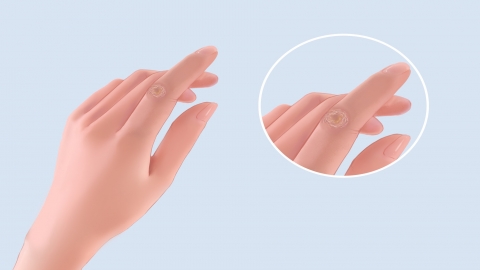What should I do if my body feels sore?
Body aches may be caused by intense exercise, prolonged poor posture, rheumatoid arthritis, osteoporosis, gout, and other conditions. Symptoms can be improved through rest and relaxation, posture correction, medication, nutritional supplementation, and professional treatment. If symptoms persist or are accompanied by joint swelling and restricted movement, prompt medical attention is necessary.

1. Intense Exercise: High-intensity physical activity within a short period leads to excessive lactic acid buildup due to anaerobic respiration in muscles, resulting in body aches—commonly affecting limb muscles—with symptoms most noticeable 1–2 days after exercise. It is recommended to stretch and massage after exercising to promote lactic acid metabolism, apply warm compresses to sore areas, and replenish fluids and electrolytes to reduce the duration of discomfort.
2. Prolonged Poor Posture: Sitting for long periods, slouching, or looking down at electronic devices causes muscles to remain tense continuously, impairing local blood circulation and leading to aching in the neck, shoulders, lower back, and upper back, often accompanied by muscle stiffness. It is advised to stand up and move every hour for 5–10 minutes, adjust sitting and standing postures to maintain a neutral spine alignment, and use a foam roller before bedtime to relax tight muscles.
3. Rheumatoid Arthritis: An immune response triggered by Group A beta-hemolytic streptococcal infection that affects the synovial membranes of joints, causing aching and pain in joints and surrounding tissues. Large joints are commonly involved, with symptoms including redness, swelling, and warmth. Patients may take medications such as enteric-coated aspirin tablets, ibuprofen sustained-release capsules, or methotrexate tablets under medical supervision to alleviate symptoms.
4. Osteoporosis: Insufficient intake or excessive loss of calcium and vitamin D leads to decreased bone density and deterioration of bone microstructure, reducing skeletal support strength. This often results in lower back aches and fatigue, which worsen with activity and may lead to fractures in severe cases. Under medical guidance, patients may use medications such as calcium carbonate D3 tablets, alendronate sodium tablets, or calcitriol soft capsules to manage symptoms.
5. Gout: Abnormal uric acid metabolism causes urate crystals to deposit in joints and surrounding tissues, triggering inflammation that leads to joint aching and severe pain—commonly affecting toes and ankles—accompanied by redness, swelling, and heat. Medications such as allopurinol tablets, febuxostat tablets, or colchicine tablets should be taken as prescribed to relieve symptoms.
Daily care includes maintaining a balanced diet rich in calcium and vitamin D; practicing proper posture to avoid prolonged sitting or standing; engaging in moderate exercise to strengthen muscles; and staying warm to prevent joint exposure to cold.







